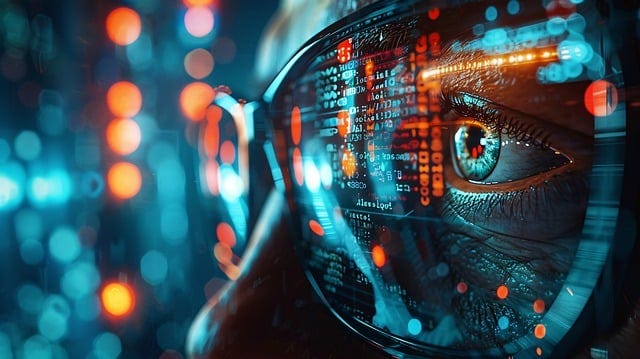Are Software Developers Safe from AI in Silicon Valley?
Are Software Developers Safe from AI in Silicon Valley? silicon Valley. The land of innovation, ambition, disruption, and a non-stop engine for technological progress. From the invention of the microchip to the launch of self-driving cars, this high-tech ecosystem has always embraced change. But now, a fascinating and unnerving evolution is unfolding: artificial intelligence is not just transforming industries—it’s coming for the coders themselves.
The rise of AI replacing software developers is no longer a fringe conversation among futurists. It’s front and center in C-suite meetings, hiring strategies, startup pitches, and developer Slack channels. The engineers who built the tools of automation are now watching those tools evolve into their potential rivals.

The Dawn of Developer-Savvy AI
A decade ago, AI struggled with basic language tasks. Fast forward to today, and AI models are writing code, testing it, optimizing functions, and even suggesting design patterns. GitHub Copilot, OpenAI Codex, Tabnine, Amazon CodeWhisperer—the list keeps growing. These tools understand natural language and translate it into usable, production-ready code in milliseconds.
Developers who once prided themselves on elegant syntax are discovering that AI can replicate their solutions in a fraction of the time. What began as a simple autocomplete has morphed into full-fledged programming copilots. The trajectory of AI replacing software developers no longer feels speculative—it feels possible.
Decoding the Fear: Why AI Has Developers on Edge
For years, automation has chipped away at routine tasks. It started with manufacturing, crept into logistics, and reshaped finance. Now, with coding in AI’s crosshairs, software developers in Silicon Valley are asking: “Are we next?”
It’s a rational concern. The emotional connection developers have with their craft is deeply rooted. Code isn’t just text—it’s logic, elegance, and a manifestation of creative problem-solving. Watching machines imitate that skill can feel like watching an artist be replaced by a printer.
But here’s the nuance: machines imitate. They don’t ideate.
AI lacks empathy, foresight, and original thinking. It can suggest the “how,” but it struggles with the “why.” And in this subtle distinction lies hope for the modern developer.
What AI Can (and Can’t) Do Right Now
To assess whether AI replacing software developers is a real threat, it’s crucial to understand where the technology stands.
What AI Excels At:
- Boilerplate code generation: CRUD operations, simple functions, basic error handling
- Autocomplete: Predicting the next line or block based on context
- Documentation assistance: Creating comments and summaries
- Unit test creation: Generating coverage for standard code paths
- Debugging suggestions: Identifying common bugs or syntax issues
What AI Struggles With:
- Complex architecture: Designing scalable, secure, multi-layered systems
- Business logic: Translating vague requirements into code that meets human goals
- Abstract thinking: Innovating entirely new solutions, algorithms, or features
- Human-centric design: Building software that’s intuitive and empathetic
- Ethics and judgment: Navigating trade-offs and societal implications of code
In essence, AI is incredible at tasks, but it lacks vision.
A Changing Landscape: Developers in Transition
Let’s be clear: the role of the software developer is not vanishing. It is, however, undergoing a transformation. Developers are being asked to level up—from code writers to code orchestrators. Instead of crafting every line manually, the future developer will steer, validate, and integrate AI-generated contributions.
Imagine an AI writing 70% of your codebase, while you focus on verifying security, refining UX, handling edge cases, and pushing the product forward. It’s not replacement—it’s augmentation. But only if developers adapt.
The Junior Developer Dilemma
Where the pinch is being felt most? Entry-level positions.
Junior developers, whose responsibilities often include writing simple scripts or maintaining legacy code, are facing greater displacement risk. These are precisely the tasks AI now handles with elegance and speed.
That said, this doesn’t spell doom. It signals a shift in how newcomers should train and think. Learning how to prompt AI, critique its output, and work collaboratively with machine counterparts will be as vital as mastering a new programming language.
The paradigm is shifting from “Can you write this function?” to “Can you validate, improve, and explain the function AI just wrote?”
Silicon Valley’s Response to AI Disruption
Silicon Valley isn’t panicking. It’s pivoting.
Leading Companies Are:
- Integrating AI in dev workflows: GitHub Copilot is now a standard tool in many firms’ tech stacks.
- Launching AI education tracks: Upskilling teams on prompt engineering and AI ethics.
- Rethinking hiring: Valuing product thinking, communication, and adaptability over raw coding skill.
- Exploring hybrid roles: Merging product managers with technical fluency and developer advocates who speak both human and machine languages.
The future of work in Silicon Valley isn’t about fighting AI—it’s about dancing with it.
High-Value Skills That AI Can’t Replicate
To thrive in a world where AI replacing software developers is an active trend, human engineers must double down on the following:
1. Product Sense
Understanding user needs, market fit, and the “why” behind features is invaluable. AI doesn’t have intuition.
2. System Architecture
Designing fault-tolerant, scalable systems across distributed environments is a high-level skill AI cannot independently master.
3. Cross-functional Collaboration
AI doesn’t go to meetings, pitch ideas, or mediate disagreements. Human developers still lead these complex dynamics.
4. Security & Compliance
AI can identify vulnerabilities, but it doesn’t understand regulatory nuance, risk appetite, or evolving compliance laws.
5. Innovation
The next big idea in tech won’t come from AI. It’ll come from a developer who understands the limitations of today and dreams up something better.
Real World: Developers Using AI Today
Despite fears, many developers report increased productivity and job satisfaction when working with AI. Tasks that used to take hours—such as writing tests or refactoring clunky legacy functions—now take minutes. More time is left for creative exploration, architectural brainstorming, and mentoring.
This dynamic mirrors what calculators did for accountants. Or what Google did for researchers. Initially threatening, ultimately empowering.
Is AI Just Another Trend?
Skeptics argue AI is overhyped. After all, AI-generated code still needs human review. Bugs slip through. Hallucinations happen. Context is often lost.
But dismissing AI as a passing phase is risky. The technology is improving rapidly. Each iteration is more nuanced, more efficient, and more embedded in tools we already use.
AI is not a gimmick. It’s a tectonic shift. Ignoring it is not an option.
Ethical Quagmires and Legal Gray Zones
As AI writes more code, a new frontier of ethical and legal concerns emerges. Who owns the AI-generated code? Can developers be held accountable for bugs written by machines? What if AI borrows from copyrighted code in its training data?
These are not theoretical questions—they’re already prompting lawsuits, heated debates, and policy rewrites. Developers must now become conversant in tech ethics, AI governance, and intellectual property law.
In this new landscape, developers aren’t just engineers—they’re also stewards of responsibility.
Preparing for the Future: Practical Steps for Developers
Here’s a roadmap for developers who want to stay future-proof and ahead of the AI curve:
1. Learn to Prompt Like a Pro
Prompt engineering will become as critical as knowing syntax. Understand how to guide AI to produce high-quality, context-aware output.
2. Embrace Lifelong Learning
Stay curious. AI, cloud computing, quantum programming, ethics—whatever your path, keep evolving.
3. Build a Personal AI Toolkit
Experiment with tools like Copilot, Tabnine, Notion AI, and LangChain. Learn their strengths, quirks, and failure modes.
4. Contribute to Open Source
Not only does this showcase your skills, but it exposes you to the collaborative reality of human-driven innovation.
5. Teach Others
Become a knowledge multiplier. Mentor junior devs. Write blog posts. Share your learnings. Build community resilience.
Why Software Development Isn’t Dying—It’s Morphing
Let’s reframe the question: it’s not about whether AI replacing software developers is happening. It’s about how software development itself is evolving.
Code is becoming more abstract. Interfaces are becoming more conversational. And the developer’s role is expanding into realms of psychology, ethics, strategy, and design.
Rather than feeling obsolete, developers should feel empowered. The tedious tasks are fading. What remains is the intellectual, the creative, the collaborative.
This isn’t the end of software development. It’s the renaissance.
The Silicon Valley Outlook
Silicon Valley thrives on reinvention. It’s weathered bubbles, booms, busts, and blockchain. It will adapt to AI.
VCs are already funding startups that build AI-enhanced dev tools, AI debugging assistants, and real-time AI QA testers. Job postings are shifting to include AI tool fluency. Universities are updating curricula to include human-in-the-loop design.
The valley isn’t mourning the developer’s demise—it’s celebrating the emergence of a smarter, faster, and more strategic tech workforce.
Final Thoughts: Don’t Fear the Code Whisperer
AI is here. It’s learning, adapting, and getting eerily good at what was once uniquely human. But in all its brilliance, it’s still a tool—a powerful one, yes, but still just a tool.
The most important variable in this equation isn’t AI. It’s you—the developer.
So whether you’re a senior architect, a recent bootcamp grad, or a startup founder building your MVP, the message is the same:
Don’t fear that AI replacing software developers will make you obsolete.
Fear not adapting fast enough to become indispensable.
Learn the tools. Lead with creativity. Stay human. The future of software isn’t just AI—it’s AI and us, together.
And for those ready to ride the wave instead of being swept away, the best is yet to come.




